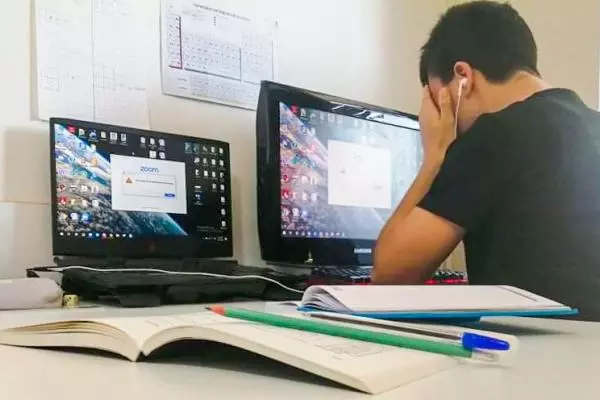
Student woes during Covid times
text_fieldsThe domain of social life worst affected by the uncontrolled spread of the Covid pandemic is that of education. The need to avoid the mingling of teachers and students necessitated closure of institutions which continued indefinitely, to the extent of cancelling exams. In this situation, the diligence shown by state governments including that of Kerala to set up online classes and make up for the class hours deficit is really laudable and has attracted sincere co-operation from the people in view of the future of the younger generation. However, when opportunities of the usual campus interactions of students and teachers were lost, that has made significant adverse impact, as evidenced by a recent study which has come out with really disturbing facts. Though this is not a result of any negligence or deliberate inaction from either the government or the people, the consequences are of concern. Attention to this dimension of the situation has been drawn by the survey conducted by the Psychological Resources Centre of Government Women's College Thiruvananthapuram, on behalf of the Collegiate Education Directorate.
The study shows that 22.34 percent of college students had contemplated ending their lives at least once, 5.17 per cent did actually attempt suicide. 25.5 percent expressed deep anxiety about their future as against a mere 4.9 percent without any anxiety. While 53.3 percent suffer the pain of loneliness, 10.66 percent students complained of snapped friendships. A large section has been suffering the grief of their family income being denied. About 23.85 percent said their parents have lost their jobs. More moving is the finding that 58.9 percent of students are in a zone of depression. In addition, online classes themselves have also created bodily suffering, with 77.9 percent complaining about headache and 65.48 percent experiencing eyesight complaints of whom 27.66 per cent are facing blurred vision.
The report prepared by the collegiate education authorities deserves serious consideration, said Kerala Higher Education minister Dr R Bindu. She also said that as part of addressing the issues, the government would consider expanding availability of counselling centres in colleges. She also said that mental health literacy will be ensured among students and parents. The minister pointed out that consumption of alcohol and lack of income of the family also impair the mental health of students. Systematic and efficient counselling is undoubtedly a major step towards a solution of the problem. But since the only means currently available for offering counselling to all the college students of the state is again online classes, one cannot lose sight of its limitations. Nor is it a substitute for the opportunity to spend time with friends and teachers. The government does not have a clear idea about the solution to the myriad financial challenges faced by families due to loss of jobs and income. As for the Central government, which pleaded in the Supreme Court that it could not afford to pay compensation to the families bereaved by Covid deaths, it is certain that will never be able to think of rehabilitation packages which will cost several times higher. Apart from the fact that free ration and food kit distribution will solve the starvation of a large section, it will not suffice to make good the income loss of crores of families. It would be meaningless to expect governments which are not prepared to reset their priorities in spending or to shed wasteful expenditure or to address the humanitarian issues of the lower rungs, to accord the necessary attention to the burning issues of the future generation.
While touching upon the mental pressures on the students, the Minister cited it as a fact that the spread of drinking among families does create problems, but then how can she justify the decision of the government she is part of, to open restaurant bars and foreign liquor shops in a hurry to remove all hurdles in the free flow of liquor? And can she deny the truth that the spread of drinking is at a faster pace among adolescents and students and that it seriously affects their behaviour and mental health? Covid pandemic may not be a man-made crisis. But it needs to be admitted that human acts are responsible for its spread and consequences.























